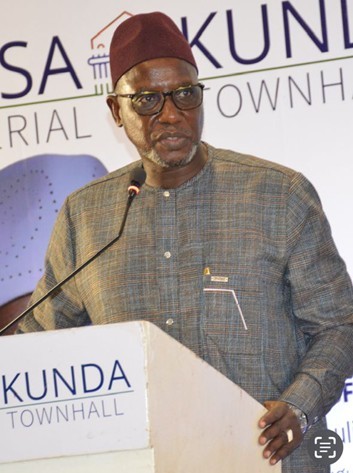
The initiative, unveiled by Interior Minister Abdoulie Sanyang at the Ministerial Town Hall Meeting (Mansa Kunda) on Saturday, aims to address chronic overcrowding, poor infrastructure, and lack of rehabilitation programmes by introducing a rights-based, skills-oriented approach to inmate management.
Established in 1953, the Gambia Prison Service (GPS) has long struggled with inadequate facilities and overcrowding. Now, the government is embarking on a major project to overhaul the system, repositioning prisons not merely as detention centres but as places of correction, education, and vocational development.
The proposed facility is designed to house up to 3,000 inmates, separated by gender, age, and security level. Juvenile offenders will have access to education from Grades 7 to 12, while adult inmates will benefit from vocational training and production programmes aimed at equipping them with skills for life after incarceration.
According to Minister Sanyang, the project represents a decisive shift toward rehabilitation and reintegration, reducing reoffending while enhancing public safety. “This is not just about building walls; it is about building opportunities,” he stressed.
The plan also tackles longstanding issues such as poor living conditions and limited reintegration support. By creating humane spaces, offering skill-building programmes, and generating income through prison-based enterprises, the government hopes to develop a correctional system that benefits both inmates and society.
Beyond prison reform, the Ministry of Interior is also pushing forward with other major initiatives aimed at strengthening national security and modernising governance.
One of the flagship projects is the establishment of a Law Enforcement Academy, which will serve as a regional centre of excellence for training security officers. The facility will offer diploma, graduate, and postgraduate courses in policing, peacekeeping, and other law enforcement disciplines. It will be equipped with modern classrooms, forensic laboratories, a firing range, hostels, and e-learning facilities. Minister Sanyang said the academy is designed to professionalise law enforcement and set new standards of training, preparing officers not only for crime prevention but also for international peacekeeping roles.
The government is also preparing to roll out a digital national identity system as part of efforts to strengthen governance and accelerate economic growth. The new ID, described as a “strategic national asset,” will provide every Gambian with a secure legal identity, including marginalised groups and rural communities that have long lacked formal documentation. Officials say the system will enhance financial inclusion, improve public service delivery, and lay the foundation for a digital economy.
According to the minister, these reforms are in line with the government’s broader Security Sector Reform agenda, which prioritises human security, effective crime prevention, and sustainable development.




